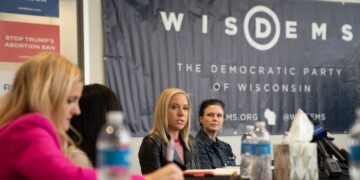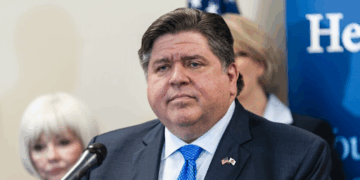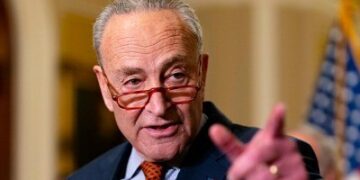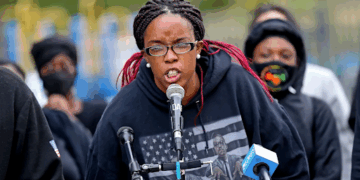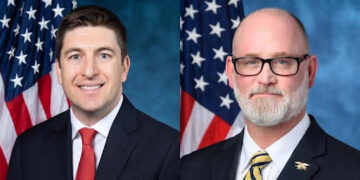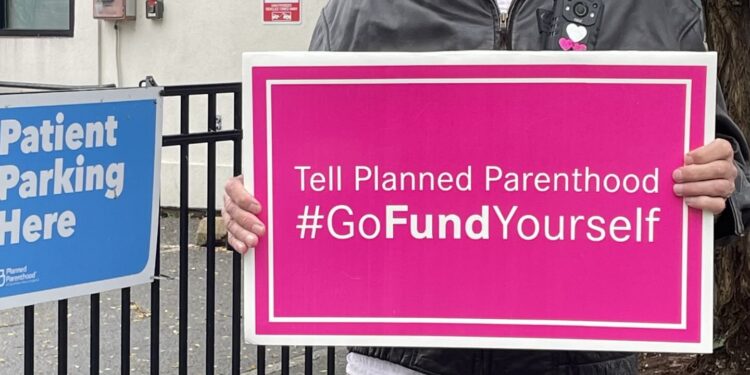Planned Parenthood is swimming in taxpayer money—hauling in over $670 million in government funding and sitting on $2.3 billion in net assets, all while performing dramatically fewer health services than it did just a decade ago.
Despite its declining medical footprint, the organization has doubled down on politics—funneling millions to Democrats and ramping up election spending through independent expenditures. According to the Charlotte Lozier Institute, core services like breast exams, Pap smears, and contraceptive care have dropped by up to 85% since 2010, even as Planned Parenthood’s political influence has only grown.
As Planned Parenthood grows richer and more politically entrenched, the medical services it was once known for are vanishing. Meanwhile, the organization’s role as a major provider of abortion and gender-transition services has expanded—both areas that remain deeply controversial among taxpayers.
President Donald Trump’s One Big Beautiful Bill Act, signed into law July 4, sought to address this issue. Section 71113 of the law suspends Medicaid reimbursements to abortion providers like Planned Parenthood for one year, effectively cutting off indirect federal subsidies. While the Hyde Amendment already prohibits direct federal funding for abortions, this provision aims to close the Medicaid loophole allowing taxpayer dollars to underwrite other services, thereby subsidizing abortion in practice if not in name.
Pro-life activists have been fighting for years to prevent any and all federal funding from ending up in the abortion provider’s coffers. (RELATED: U.S. Treasury Reports Surprise June Surplus Driven by Tariff Revenue)
Predictably, Planned Parenthood sued. Though the law doesn’t name the organization, it claimed to be “targeted”—even arguing that Section 71113 amounted to a bill of attainder, a charge widely dismissed by legal experts. Conservatives argue that Congress has every right to control federal spending, saying Planned Parenthood is not entitled to taxpayer dollars simply because it’s politically powerful.
Yet within hours of the lawsuit being filed, U.S. District Judge Indira Talwani—an Obama appointee—issued a temporary restraining order blocking enforcement of the law only as it applied to Planned Parenthood. Her justification was an assertion of having found “good cause” cause for the injunction. Critics have rightly described this as a textbook case of judicial activism, where a judge bypasses the legislative process to impose a political outcome.
Some argue Talwani’s injunction isn’t just a legal overstep; it is “an even more extreme example of judicial overreach.” When courts become vehicles for partisan outcomes—especially when defending billion-dollar organizations under the guise of protecting “rights”—democratic accountability suffers.
Planned Parenthood poured $40 million into the 2024 elections to support President Biden, then Vice President Kamala Harris and congressional Democrats. This follows $45 million spent in 2020 and $50 million in 2022. The group’s political and advocacy arms targeted battleground states like Arizona, Georgia, Pennsylvania, Wisconsin, and North Carolina, hoping to energize voters on abortion-related ballot measures.
This raises a series of fundamental questions: should taxpayers be funding an organization that turns around and spends tens of millions influencing elections? Especially one that now provides fewer essential health services than ever before? Planned Parenthood has become a lobbying giant yet relies on government funding while operating like a political campaign arm. Some critics believe the $204.7 million it netted in surplus revenue last year proves it doesn’t need taxpayer support—it wants it to maintain political leverage. (RELATED: Self-Described “Extremist” “Communist” Starts Left-Wing Gun Club in Wisconsin)





